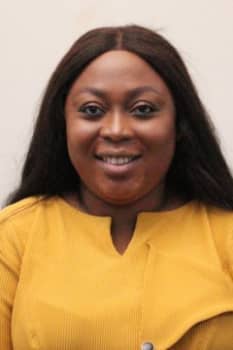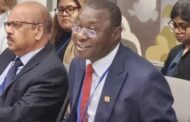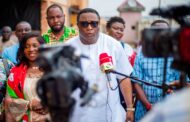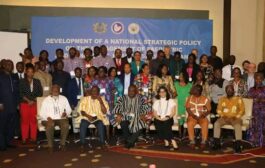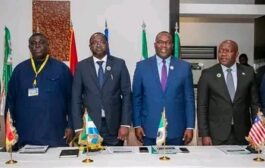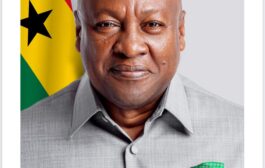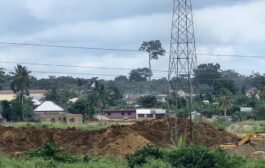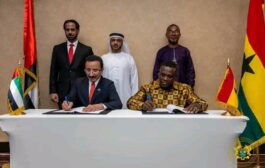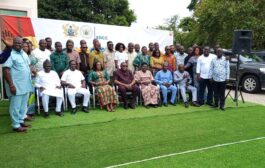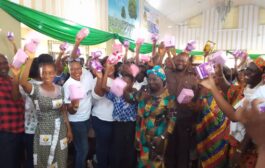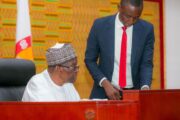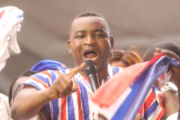20TH FEBRUARY, 2025
Parliament House – Mr. Speaker, I thank you for the opportunity to rise and make this statement on the floor of this august House in commemoration of the World Day of Social Justice, a day set aside by the United Nations for nations to reflect on the fundamental principles of fairness, equity and human dignity in our societies. Social Justice is at the heart of every serious and thriving democracy and for us in Ghana, it must be viewed as an essential pillar in the pursuit of national and inclusive development for all.
In 2007, the UN established the World Day of Social Justice and first observed the day in 2009 to promote social justice by addressing issues of poverty, inequality, unemployment, and human rights violations. Since then, the term “Social Justice” has featured prominently in the literature in conversations about justice and sustainable development.
Mr. Speaker, this year’s celebration is on the theme, “Empowering Inclusion, Bridging Gaps for Social Justice”. The theme calls for a need to urgently implement inclusive policies and social protection systems to address various forms of inequalities in the country.
Mr. Speaker, the struggle for social justice in Africa and more specifically Ghana, is deeply rooted in history and dates back to the Berlin Conference of 1884-1885. The aftermath of the Berlin Conference saw the partitioning of Africa without recourse to indigenous populations. Subsequently, centuries of oppression through enslavement and colonialism followed with the exploitation of Africa under colonial rule perpetuating a systemic economic and social injustices that continues to affect the progress of the continent today.
However, Mr. Speaker, the tide began to turn with the dawn of independence movements across Africa. Ghana, under the leadership of Dr. Kwame Nkrumah became the first sub-Saharan African country to achieve independence on 6th March, 1957. This marked a significant step towards emancipation, dismantling oppressive colonial structures and building a more just and equitable society. Since then, Ghana has made notable progress in areas such as education (free education for Northern Ghana under Dr. Kwame Nkrumah), health care, political participation, and economic empowerment and yet, the fight for true social justice remains unfinished, as many inequalities persist in our society today.
Current Trend of Social Justice Issues in Ghana
Mr. Speaker, strides have been made and yet Ghana continues to grapple with serious social justice issues which call for urgent attention and sustained actions to curb rising inequities and inequalities as a result of our difficult economic conditions. Mr. Speaker, permit me to highlight some current issues in the area of social justice:
Democracy and Human Rights Violations
- The arrest of Democracy Hub protestors in recent years and my illegal arrest have raised concerns about the shrinking civic space and respect for fundamental freedoms. The right to peaceful assembly and free expression are cornerstones of our democracy and must be upheld at all times.
- The tragic deaths of eight Ghanaians and shooting at me in the 2020 elections due to election-related violence remain unresolved. Furthermore, similar concerns have arisen in the 2024 elections, where lives were again lost especially in the Awutu Senya East Constituency (KASOA). It is imperative that justice is served for the victims and their families.
Rising Economic Hardships and Inequalities
- The economic downturn following the 2022 financial crisis pushed more than 800,000 Ghanaians into extreme poverty according to the World Bank report in 2023.
- The Domestic Debt Exchange Programme (DDEP) resulted in severe financial losses (haircuts) for domestic bondholders, many of whom were pensioners and working-class Ghanaians who relied on these investments for their livelihood.
- Unemployment and job scarcity continue to threaten the economic security of millions, particularly the youth. Many highly educated graduates struggle to find decent jobs, contributing to rising frustration and social unrest. This phenomenon has been designated as a national security threat by analysts within civil society and government.
Lack of Access to Essential Services
- Affordable housing remains out of reach for many ordinary Ghanaians due to skyrocketing rent prices and the absence of comprehensive housing policies.
- Access to quality health care, education, and social welfare is still a major challenge, with inequalities persisting in both urban and rural communities.
Government’s Commitment to Social Justice
Mr. Speaker, the new H.E. John Dramani Mahama – Prof. Naana Jane Opoku-Agyemang administration, sworn into office on 7th January 2025, is fully committed to addressing these pressing issues and advancing social justice for all Ghanaians. The government is determined to implement bold, people-centered policies aimed at creating economic opportunities, reducing inequalities, and promoting fairness in society. Permit me to highlight some of the key interventions the current regime is committed to implementing in the pursuit of social justice for Ghanaians of all facets of life.
Mr. Speaker, the 24-Hour Economy Policy is a mega transformative policy by the new administration. The President has appointed the distinguished Mr. Goosie Tanoh to head the coordination and implementation of the policy from the Office of the President and it is aimed at creating more decent and sustainable jobs by maximizing economic productivity throughout the day and night, ensuring expanded employment opportunities for all.
The “Mo Ne yo” Policy is a social security programme for informal sector workers and it is aimed at ensuring workers in the informal sector have financial security upon reaching the age of 60. This will safeguard the future of millions of Ghanaians engaged in informal employment. Mr. Speaker, I will call on the Finance Minister and the implementing ministry responsible for this policy to move swiftly and set it in motion to secure the future and social security of informal workers in the country.
Mr. Speaker, the “No Fees Stress” Policy which is an initiative designed to eliminate financial barriers for first-year tertiary students will ensure that higher education is made more accessible to all, irrespective of one’s financial background. There are already indications that this policy will feature in the 2025 budget and economic statement of government.
Furthermore Mr. Speaker, on the issue of social justice for Victims of Election Violence – President John Mahama has directed the Inspector General of Police (IGP) to commence investigations into the deaths related to the 2020 and 2024 elections. Those responsible must be held accountable, and the affected families must receive compensation and closure.
Source:Mybrytfmonline.com



